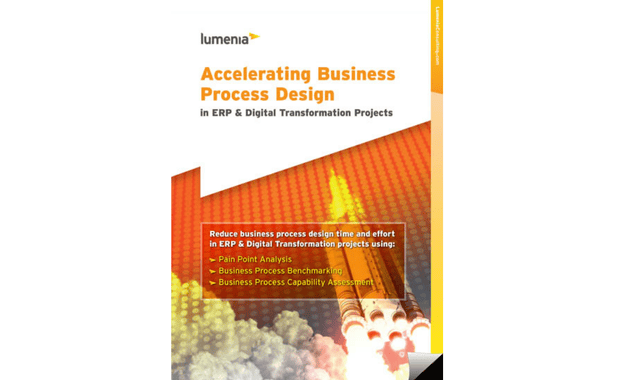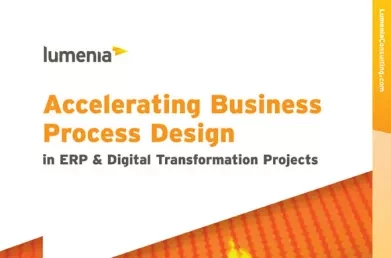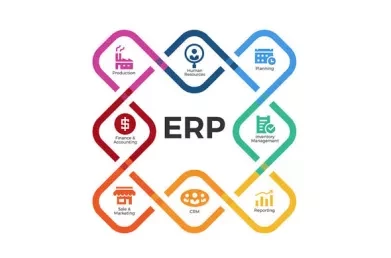5 Reasons to Focus on Business Process Design Prior to Implementing ERP
Usually, when thinking about ways to improve ERP project outcomes, people will identify factors such as strong senior management support, securing enough high-quality resources and good project management. All of these are really important, but a factor that is often overlooked is the importance of starting work on business process design as early as possible – ideally, before the ERP selection process.
Click Play for a 50 second video summary of this blog 5 Reasons to Focus on Business Process Design Prior to Implementing ERP.
Here are five reasons why focusing early on process design will significantly improve your chances of ERP project success.
1. Select The Best ERP To Support Future Processes
Defining future state business process design in advance of ERP selection means that the new ERP solution will be chosen on its capability to meet planned future processes. In most ERP selection projects, the functional requirements used to drive the selection are based primarily on existing practices, which are often very far from optimal. There is a significant risk that this will cause unnecessary customisation of the new ERP solution, which may become merely a shinier, newer version of the legacy system, with minimal improvement in performance.
2. Make ERP a Business Project Not An IT Project
Making future state process design one of the first tasks on the ERP transformation journey is a very clear statement to the business that the project is not primarily about technology, but about delivering business benefits. This work should be led by business managers who have a vested interest in making the processes work more effectively. ERP projects are often regarded by some senior managers as technology initiatives that should be driven by IT. This attitude invariably leads to difficult ERP implementation experiences.
See also 5 Quantifiable Benefits of ERP
3. Get a Head Start on Change Management
Many ERP projects will result in significant change to work practices. Change management is in part about dealing with the implications of this. The earlier the future state processes are understood, the sooner work can be done on preparing for the change through stakeholder engagement and workforce transition planning with senior managers. Very often in ERP projects, change is not managed well because there is no time to address these issues among all of the other project-related tasks that need to be done.
4. Reduce ERP Project Design Time and Effort
One of the first big tasks for the ERP consultants in any implementation project is to run design workshops with the internal project team. The workshops are required so that a blueprint for the new ERP can be agreed, which will allow the consultants to build the new solution. The time and effort involved in this task can be significantly reduced if the internal project team already have a clear understanding of how they would like the future business processes to work.
5. Design By Process Not By Function
Attempting to design the future state processes as part of the ERP design workshops usually does not work well for two reasons. Firstly, most ERP project teams are structured by function rather than by process. So, a design workshop will focus on the accounts receivable function perhaps rather than the orders to cash process. This tends to result in designs that are siloed by function. Secondly, many ERP consultants are experts in configuring their ERP solution but are less skilled in the techniques of business process design. Taken together these factors mean that most ERP design phases conclude with a technical blueprint, but without a clearly documented set of future process designs that can be understood by the business. This in turn causes downstream issues for testing, training, and change management. Working on the future state designs in advance of the workshops prevents most of these problems from occurring.
In summary, spending time and effort designing future state business processes as early as possible in your ERP-enabled transformation project will greatly increase the chances of a successful project.
To find out more about how to accelerate business process design prior to implementing ERP, download our latest white paper from the Publications section Accelerating Business Process Design in ERP & Digital Transformation Projects .
This blog was written by Sean Jackson, Principal Consultant at Lumenia. If you would like further information on ERP please send an e-mail to Sean Jackson.



